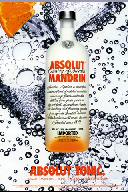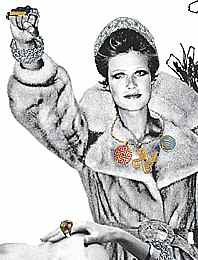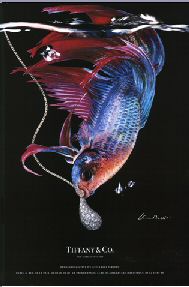Branding Expert Explains Why Reputation Matters
December 28, 04
“People like people that have a reputation,” says branding expert Dan Ben-Ary at the opening of his presentation at HRD’s third diamond conference, laying the foundation for how to create consumer confidence. How do you earn a reputation? Reputation grows out of a series of actions over time, specifically by delivering your promise time and again. Then, he says, people trust you.
|
|
Ben-Ary, of Parazar (formerly known as YYY), says there are millions of products in the market. But building brands, those products that gained reputation and trust, are the challenge the industry faces if it wants to create confidence among consumers.
To do so in today’s business world, “a brand needs to be the promise of an experience. A mixture of tangible and intangible values and concepts that, if properly managed, create a unique positioning and influence on a market over time,” he states.
In practical terms, Ben-Ary makes the point that it’s about accurately communicating your business strategy, and having it eminent through every aspect of the business. Not just advertising, PR or costumer relations, but in product development and logistics too as well as in every other aspect of the business.
|
|
It starts by being relevant and inspiring. Bringing examples of brands such as the Smart cars that fit into the new urban lifestyle, and iPod music players that dub as personal data storage devices (works for the ruling PC, but has the chic apple attitude) he shows how companies, even when they communicate their products, the focus in the ads is on how they are part of consumers’ lifestyle and culture rather then “just” displaying the product. A Rolex ad talks about mountain climbing, overcoming the challenges of nature, not the qualities of the watch, making it relevant to new target groups. The watch is simply associated with it.
His next recommendation is to be simple. Successful high tech firms with complicated technology employ this strategy. “Intel Inside is simple. You don’t have to know anything about your computer. Everything is fine, you can trust buying the computer – because you have an Intel inside. By that they created consumer confidence,” he demonstrates how a complicated issue is made simple – and trustworthy.
|
|
Be focused, he says, so your voice will be heard. If your company has many products with different names, you could find yourself supporting too many brands. Consolidate, he recommends, and simplify. Unilever axed many of it brands, consolidating 1200 products into 400. This avoids clutter, allows them to support fewer brands and create mega brands instead.
“Be entertaining, keep them on their toes,” is his last recommendation. Adidas, Nokia, Virgin (a great example of a simple, focused brand), and Absolut vodka are all fun and entertaining. “In blind testing, drinkers can not differentiate Absolut from other vodkas, but people always ask for Absolut in a bar,” he demonstrates how an undifferentiated product, like diamonds, can stand out by being entertaining.
|
|
Turning to the jewelry industry, Ben Ary shows how many of the industry brands do not build themselves on these principles, saying they are far from reaching their full potential because their communication is no more then product shots. By contrast, Tiffany is fun when it uses fish, Dior is relevant when it shows a fashionable woman, and David Yurman almost hides his products in the hands of a model on a beach in a black and white ambiance ad.
“80 percent of the jewelry companies do not communicate their business strategy, instead they show a product, in a very conservative manner, and that is not entertaining!”
|
|
Taking the message to the fullest is Garrard, that brought in a new creative director, Jade Jagger, that infused Rock n’ Roll energy and rebellion into the sleepy “by appointment to Her Royal Highness” brand. The jeweler’s new by-appointment-only New York SoHo loft is a collection of fun & music in an intimate and discreet setting, that creates a new retail experience, and a brand that appeals to new clients.
|
|
To prove this he points out that a list of the world’s top 100 brands has only one jeweler – Tiffany & Co. “There is room for more jewelry brands in there,” he claims.
On the topic of natural diamonds, he says a few of the challenges the industry faces today include creating strong global brands. This will require the big names in the industry to join forces and create an international standard.
Wrapping up, Ben Ary brings up four points as food for thought: create holistic brands; act as one team; bring in creative directors and marketing people with non-diamond/jewelry experience; and employ more women in top executive positions, because they know how today's woman are evolving, and what are her true needs & desires.





